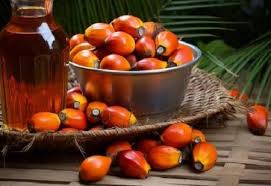July 22nd Current Affairs

Operation Sindoor
Stay connected via Google News Follow us for the latest travel updates and guides. July 21st Current Affairs Home /

Alaska Earthquakes
Stay connected via Google News Follow us for the latest travel updates and guides. July 21st Current Affairs Home /

August 2, 2027 Solar Eclipse
Stay connected via Google News Follow us for the latest travel updates and guides. July 21st Current Affairs Home /

India’s milestone in clean energy transition
Stay connected via Google News Follow us for the latest travel updates and guides. July 21st Current Affairs Home /

‘Baby Grok’, child-friendly AI app
Stay connected via Google News Follow us for the latest travel updates and guides. July 21st Current Affairs Home /

Impeachment proceedings against Justice Yashwant Verma
Stay connected via Google News Follow us for the latest travel updates and guides. July 22nd Current Affairs Home /
India Becomes Top Importer of Malaysian Oil Palm Seeds

Context
India has become Malaysia’s largest importer of germinated oil palm seeds, with 3.03 million tonnes of palm oil imports in 2024 — 17.9% of Malaysia’s total palm oil exports. This trend is driven by India’s ambition to expand domestic palm oil production under the National Mission on Edible Oils–Oil Palm (NMEO-OP) and reduce its heavy dependence on edible oil imports.
Geographical Reasons
- Agro-Climatic Suitability:
Oil palm thrives in humid tropical regions with 2000–2500 mm rainfall and temperatures of 24–28°C. - Indian Focus Regions:
o Northeastern States (Assam, Mizoram, Arunachal Pradesh)
o Andaman & Nicobar Islands
o Southern States (Andhra Pradesh, Tamil Nadu)
These regions match the rainfall and temperature requirements.
Legal Provisions
- Essential Commodities Act, 1955: Governs regulation of edible oils, including palm oil.
- Seed Act, 1966: Regulates seed quality, though palm seed imports remain informally structured.
- Bilateral Agreements: India and Malaysia cooperate under trade frameworks, but no formal long-term palm seed contracts exist.
- MSPO Certification (Malaysia): Ensures environmental and labor compliance, relevant under global trade and SDG norms.
Significance
- Strategic Import Reduction: Edible oil accounts for 60% of India’s vegetable oil imports; palm oil is ~50% of that.
- Food Security & Inflation Control: Domestic palm cultivation can reduce volatility in cooking oil prices.
- Trade Diplomacy: Strengthens India–Malaysia agri-partnership amid EU restrictions on palm oil over ecological issues.
- Agri-Technology Transfer: Malaysian support includes high-yielding, drought-tolerant seed varieties and technical know-how.
Definition of Key Terms
- Germinated Seeds: Seeds that have begun to sprout and are ready for transplantation.
- Fresh Fruit Bunches (FFBs): The raw harvest from oil palms used to extract oil.
- MSPO (Malaysian Sustainable Palm Oil): Certification for sustainable production practices.
- NMEO-OP: India’s flagship mission to expand oil palm cultivation and processing capacity.
Pros
- Boosts domestic production
- Reduces import bill
- Provides employment in agri-sector
- Leverages Malaysia’s technical expertise
- Encourages agro-industrial development in NE India
Cons
- Palm cultivation is water-intensive and not ecologically suited to all Indian regions
- Biodiversity loss if plantations expand into forested areas
- Small farmers face long gestation periods (4–5 years for returns)
- Current seed trade is informal and lacks quality standard enforcement
Perspectives
- Geopolitical:
India’s palm import diversification from Indonesia to Malaysia also signals hedging in trade diplomacy. - Environmental:
India must avoid repeating Indonesia/Malaysia’s ecological degradation due to monoculture plantations. - Technological:
Malaysia’s newer seed varieties promise lower height growth, higher yield, and longer lifespan, improving harvesting economics.
Indian Initiatives to Reduce Oil Import
- National Mission on Edible Oils–Oil Palm (2021):
o ₹11,040 crore allocated
o Goal: 1 million hectares by 2025–26
o CPO target: 2.8 million tonnes by 2029–30
- Tariff Reductions (2023–25): Reduced import duties on crude palm oil to manage price inflation.
- Andaman Model Farms: Demonstration plots in island territories to showcase feasibility.
Challenges
- Climate Unsuitability in Some Regions
- Farmer Awareness and Adoption Gap
- Processing Infrastructure is lacking in new cultivation zones
- Ecological Criticism over displacement of native species and water stress
Way Forward
- Formalize Seed Trade: MoUs for long-term seed supply, backed by phytosanitary standards.
- Agro-Climatic Zoning: Use AI and GIS to identify zones truly fit for oil palm.
- Promote Intercropping & Agroforestry: Reduce ecological risks and boost farmer income during gestation years.
- Build Processing Units Near Farms: Reduce logistical costs and wastage.
- Adopt Sustainable Cultivation Standards (like India-Made MSPO equivalent): Ensure international acceptability of Indian palm oil.
Prelims MCQ
Q. Consider the following statements:
- Palm oil cultivation in India is currently concentrated in northeastern states and island territories.
- The Malaysian Sustainable Palm Oil (MSPO) certification ensures biodiversity conservation and labour standards.
Which of the above is/are correct?
- 1 only
- 2 only
- Both 1 and 2
- Neither 1 nor 2
Correct Answer: C. Both 1 and 2
Statement 1: Correct
- Under the National Mission on Edible Oils – Oil Palm (NMEO-OP), India is promoting palm oil cultivation primarily in northeastern states (like Arunachal Pradesh, Assam, and Mizoram) and island territories (like the Andaman & Nicobar Islands).
- As of mid-2025, India has about 3.7 lakh hectares under oil palm cultivation, with a focus on expanding this to 1 million hectares by 2025–26.
Statement 2: Correct
- The Malaysian Sustainable Palm Oil (MSPO) certification is a national sustainability standard introduced by Malaysia.
- It promotes biodiversity conservation, environmental responsibility, and adherence to labour standards and good agricultural practices for sustainable palm oil production.
Mains Question
Q. Palm oil is central to India’s strategy for edible oil self-reliance, but its cultivation raises environmental and economic concerns. Critically examine the viability of expanding oil palm cultivation in India in light of recent imports from Malaysia. (150 words)





